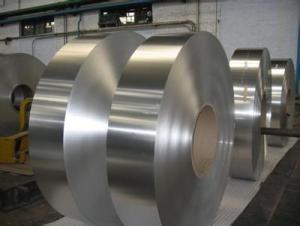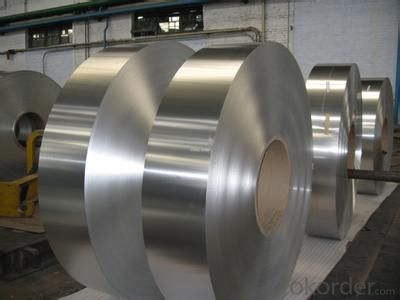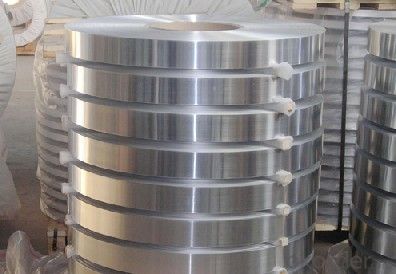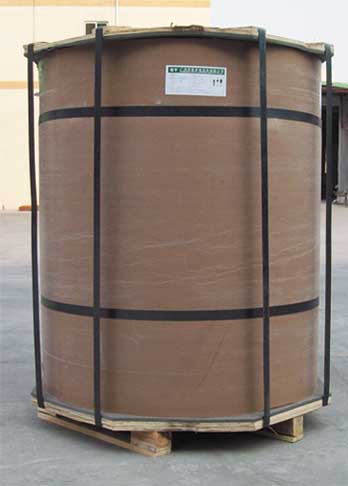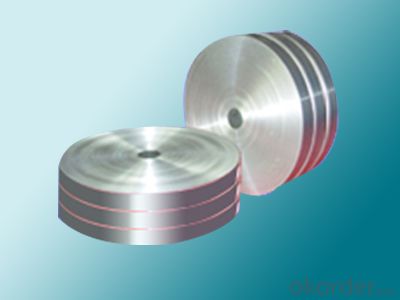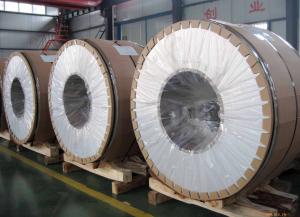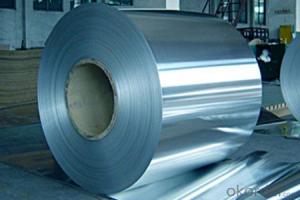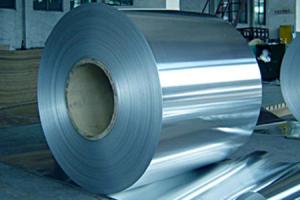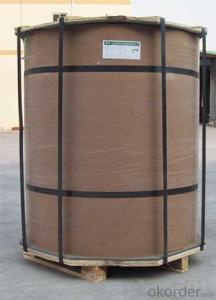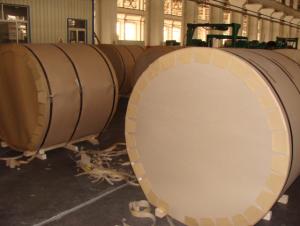Lowes Aluminum Coil - Aluminum Strips Mill Finished 3xxx
- Loading Port:
- China Main Port
- Payment Terms:
- TT or LC
- Min Order Qty:
- 5 g/ft
- Supply Capability:
- 10000 g/ft/month
OKorder Service Pledge
OKorder Financial Service
You Might Also Like
1.Structure of AluminumStrips Mill Finished 3XXX Description
AluminumStrips Mill Finished 3XXX has great ductility, heat conductivity, anti-corrosion and moisture resistance properties.
AluminumStrips Mill Finished 3XXX is widely used for electronics, instruments, lighting decoration, packing industry, house decoration, curtain wall, honeycomb-core panel, sandwich panel, aluminum composite panel and aluminum composite pipes.
2.Main Features of the AluminumStrips Mill Finished 3XXX
• Superior quality of raw material
• Reasonable and stable chemical composition
• Accurate tolerance
• Goode mechanical property
3.AluminumStrips Mill Finished 3XXX Images
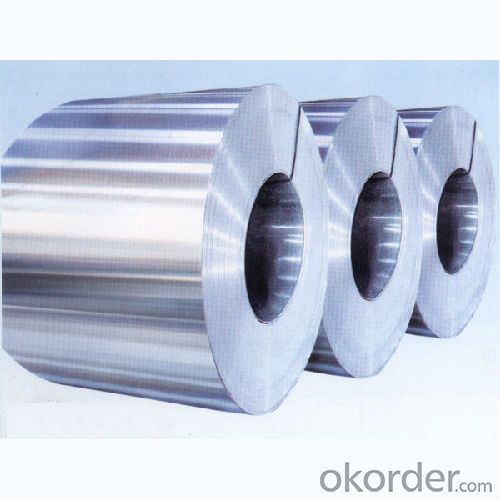
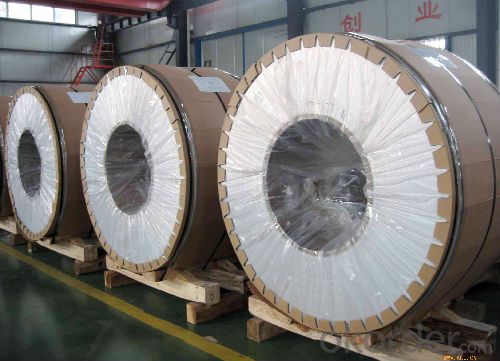
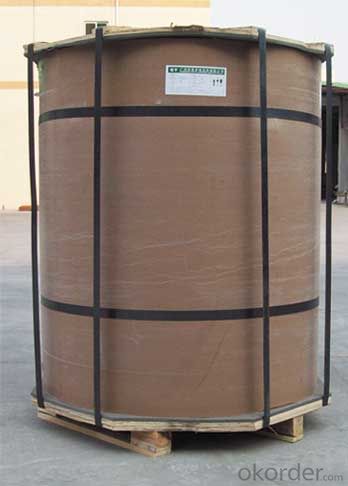
4.AluminumStrips Mill Finished 3XXX Specification
| Alloy | AA3xxx (AA3003,AA3004,AA3005,AA3105 etc |
| .Temper | H14,H16,H18,H22,H24,H26,H32,O/F |
| Thickness | 0.2mm--100mm |
| Width | 30mm--1700mm |
| Standard | GB/T 3880-2006 |
5. FAQ of AluminumStrips Mill Finished 3XXX
A.How to guarantee the quality?
Customers are welcome to our mill to visit and check the products. Besides, we can arrange a third party to test the AluminumStrips Mill Finished 3XXX products.
B.When will you deliver the products?
The AluminumStrips Mill Finished 3XXX will be delivered within 35 days after receiving advanced payment or original L/C.
- Q: How to pull the aluminum coil purchased into aluminum sheet?
- You can use decoiler machine, but after decoiling, the embossment of embossed aluminum sheet will become very shallow.
- Q: Can aluminum coils be used in pharmaceutical manufacturing?
- Pharmaceutical manufacturing can indeed utilize aluminum coils. In the pharmaceutical industry, aluminum is commonly employed for diverse tasks like packaging and manufacturing equipment. Aluminum coils are capable of producing containers, caps, and closures for pharmaceutical products. Particularly, these coils find extensive use in the manufacturing of blister packs, which are widely employed for packaging tablets and capsules. The preference for aluminum in pharmaceutical manufacturing is due to its exceptional barrier properties, resistance to corrosion, and capacity to safeguard the integrity of pharmaceutical products. Furthermore, aluminum possesses the advantages of being lightweight, recyclable, and having a low melting point, rendering it a versatile and cost-efficient option for pharmaceutical manufacturing.
- Q: What are aluminum coils?
- Aluminum coils, wound in a spiral shape, are thin and flat pieces of aluminum. Their versatility and durability make them commonly utilized in various industries. These coils are typically crafted from high-quality aluminum alloy, which grants them qualities such as lightweight, corrosion resistance, and ease of manipulation. A wide range of applications, including building and construction, automotive manufacturing, electrical appliances, and packaging, benefit from the use of aluminum coils. Depending on the specific requirements of the industry or product, these coils can be further processed into different forms, such as sheets, foils, or strips. Altogether, aluminum coils are crucial components in numerous manufacturing processes and play an essential role in diverse industries.
- Q: Are there any limitations to the coil weight of aluminum coils?
- The coil weight of aluminum coils is subject to limitations. The primary factor that restricts the coil weight is the capacity of the equipment used for handling and transporting the coils. Different machinery and materials handling systems have varying weight capacities. Exceeding these capacities can result in safety hazards and equipment damage. Furthermore, the size and dimensions of the coils also affect the maximum weight limit. Larger coils generally have a higher weight limit because they possess a larger surface area to distribute the load. Nonetheless, regardless of coil size, there is a practical limit to the weight that the machinery and equipment can bear. Additionally, the coil weight limit is influenced by the strength and integrity of the material used. Aluminum, being a lightweight material with a high strength-to-weight ratio, allows for larger coil weights compared to other materials. However, excessive weight may cause deformation or damage to the coil, impacting its quality and usability. It is essential to take these limitations into consideration and adhere to the manufacturer's recommendations and industry standards when determining the maximum coil weight. Following proper handling, storage, and transportation procedures is crucial to ensure the safety of personnel and the integrity of the aluminum coils.
- Q: Can aluminum coils be painted?
- Indeed, it is possible to paint aluminum coils. By applying paint to aluminum coils, an extra layer of protection against corrosion can be achieved, along with an improvement in their aesthetic appearance. Nevertheless, it is crucial to properly prepare the surface prior to painting in order to ensure a strong adhesion and durability. This typically involves a thorough cleaning of the coils, the removal of any existing paint or coatings, and the application of a primer specifically designed for aluminum surfaces. Once the primer has dried, a suitable paint can be applied using a brush, roller, or spray. For optimal and long-lasting results, it is advisable to use a high-quality paint specially formulated for metal surfaces. Additionally, following the instructions provided by the manufacturer and taking into account any environmental factors, such as temperature and humidity, that could impact the painting process, is of utmost importance.
- Q: How are aluminum coils tested for surface adhesion?
- Aluminum coils are tested for surface adhesion through various methods such as tape tests, peel tests, and wet adhesion tests. These tests involve applying adhesive tapes, peeling them off, and evaluating the level of coating adhesion. Additionally, wet adhesion tests involve subjecting the coils to water or chemical exposure to assess the durability of the coating. These procedures help determine the quality and adherence of the surface coating on aluminum coils.
- Q: How does the alloy composition affect the properties of aluminum coils?
- The alloy composition of aluminum coils has a significant impact on their properties. Aluminum is often alloyed with other elements such as copper, manganese, magnesium, and zinc to enhance specific characteristics. One of the key properties affected by the alloy composition is the strength of the aluminum coils. Copper and zinc alloys, such as the popular 6061 or 7075 aluminum alloys, are known for their high strength, making them suitable for structural applications. On the other hand, manganese and magnesium alloys, such as the 3003 or 5052 aluminum alloys, offer improved formability and are commonly used in the construction of automotive components or packaging materials. The alloy composition also affects the corrosion resistance of aluminum coils. For instance, the addition of magnesium in alloys like 5052 or 5083 enhances their resistance to corrosion in marine environments, making them ideal for boat building or other marine applications. Copper alloys, on the other hand, possess excellent resistance to atmospheric corrosion and are frequently utilized in outdoor structures or architectural applications. Another crucial property affected by the alloy composition is the thermal conductivity of aluminum coils. Copper alloys have high thermal conductivity, making them efficient for heat transfer applications like heat exchangers or radiators. Aluminum-magnesium alloys, such as 3003 or 3004, have lower thermal conductivity, making them suitable for applications where heat dissipation is desired, such as heat sinks in electronic devices. Furthermore, the alloy composition can impact the electrical conductivity of aluminum coils. Copper alloys, due to their high electrical conductivity, find applications in electrical wiring and conductors. However, aluminum-magnesium alloys, despite having lower electrical conductivity than copper, are still widely used for electrical transmission lines and overhead power cables due to their lightweight nature. In summary, the alloy composition of aluminum coils plays a crucial role in determining their properties. It affects the strength, corrosion resistance, thermal conductivity, and electrical conductivity of the coils, allowing them to be tailored for specific applications.
- Q: What specific tools are necessary for handling and working with aluminum coils?
- <p>When working with aluminum coils, there are several special tools that may be required. These include cutting tools designed for metal, such as metal shears or a bandsaw with a metal cutting blade, to cut the coils without damaging the material. A coil car or lifting equipment is necessary for safely moving and positioning heavy coils. Additionally, a coil leveler may be needed to straighten and flatten the coils for processing. Safety equipment such as gloves and goggles is also essential to protect against sharp edges and flying debris. It's important to use tools that are suitable for the specific aluminum alloy and thickness to ensure efficient and safe handling.</p>
- Q: Can aluminum coils be used in chemical processing equipment?
- Yes, aluminum coils can be used in chemical processing equipment. Aluminum is known for its excellent corrosion resistance, making it suitable for use in many chemical environments. It is resistant to a wide range of acids, alkalis, and other corrosive substances. Additionally, aluminum coils are lightweight and have good heat transfer properties, making them ideal for applications where heat exchange is required. However, it is important to note that aluminum has limitations in certain aggressive chemical environments, such as strong acids like hydrochloric acid or sulfuric acid. In such cases, alternative materials like stainless steel or titanium may be more appropriate.
- Q: Is it safe to use aluminum coil for storing food?
- <p>Aluminum coil can be used for food storage, but with certain considerations. Aluminum is a good conductor of heat and is often used in cookware, but for long-term food storage, it's not ideal. It's important to ensure that the aluminum is coated or lined with a non-reactive material to prevent direct contact with food, as aluminum can leach into food and may have health implications. Additionally, aluminum is not recommended for acidic foods as it can react with them. For best food storage practices, consider using materials specifically designed for food contact, such as glass or food-grade plastic containers.</p>
Send your message to us
Lowes Aluminum Coil - Aluminum Strips Mill Finished 3xxx
- Loading Port:
- China Main Port
- Payment Terms:
- TT or LC
- Min Order Qty:
- 5 g/ft
- Supply Capability:
- 10000 g/ft/month
OKorder Service Pledge
OKorder Financial Service
Similar products
Hot products
Hot Searches
Related keywords
